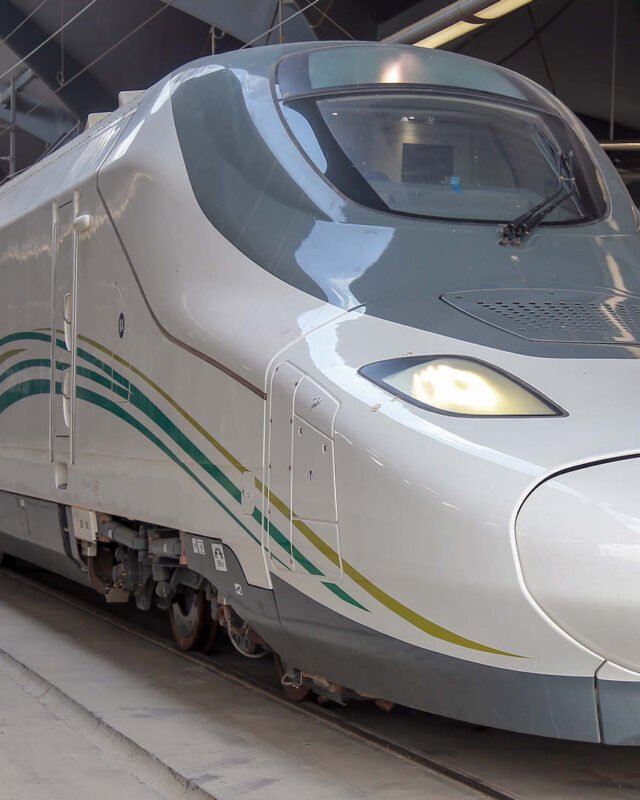Mobility as a Service (MaaS) in Saudi Arabia’s Smart Cities: Revolutionizing Urban Transport
As Saudi Arabia continues to advance its Vision 2030 agenda, Mobility as a Service (MaaS) is emerging as a key innovation in the country’s urban transport solutions. MaaS combines various transportation options—such as public transport, ride-hailing, car-sharing, and bike-sharing—into a unified digital platform that provides users with customized and seamless mobility choices. According to research from Frost & Sullivan, the MaaS market in Saudi Arabia is set to grow significantly, reaching an estimated value of $3.75 billion by 2025. This growing shift towards MaaS promises to transform how residents and visitors navigate cities, offering greater ease of use, cost savings, and sustainability.
What is Mobility as a Service (MaaS)?
Mobility as a Service (MaaS) integrates multiple transport services into a single application, allowing users to plan, book, and pay for trips across different modes of transportation in one place. This could include switching from public transit to a ride-hailing service, or combining car-sharing and bike rentals. For a country like Saudi Arabia, where urban expansion is rapid and smart cities like NEOM are on the rise, the adoption of MaaS is pivotal. It not only simplifies mobility but also encourages a more efficient, eco-friendly approach to urban transport.

MaaS is becoming increasingly relevant in Saudi Arabia, as it helps reduce reliance on private cars by promoting the use of public transport and shared mobility options. This, in turn, supports the country’s sustainability goals and enhances the quality of life for its citizens.
How MaaS is Transforming Urban Mobility in Saudi Arabia
In Saudi Arabia’s developing smart cities, Mobility as a Service (MaaS) is quickly becoming a cornerstone of the transportation system. By integrating various modes of transport into a single platform, MaaS simplifies the commuting experience. For example, a resident in Riyadh can use one app to map out a journey that includes bus rides, metro travel, and even a bike rental, creating a streamlined and efficient travel experience.
The forecasted growth of the MaaS market, which is expected to reach $3.75 billion by 2025, underscores the importance of this shift in the country’s urban transport sector. MaaS enables cities to reduce traffic congestion, decrease the environmental impact of commuting, and provide residents with more flexible transportation options.
In addition, the development of NEOM, a future city designed to prioritize sustainability and smart technology, will likely see the integration of MaaS platforms to support electric vehicles, autonomous transport, and other innovative mobility solutions. By offering access to various transport options via a single platform, NEOM and other cities in Saudi Arabia will set new standards in urban mobility.
Sustainability and Traffic Reduction through MaaS
A significant advantage of Mobility as a Service (MaaS) in Saudi Arabia is its potential to address the issues of traffic congestion and carbon emissions. By reducing reliance on private vehicles, MaaS encourages more sustainable forms of transportation, such as public transit and shared electric vehicles. This can have a major impact on reducing the number of cars on the road, which is especially important in densely populated cities like Jeddah, where traffic congestion is a growing concern.
Furthermore, as Saudi Arabia invests in renewable energy and electric vehicle infrastructure, MaaS platforms can prioritize green transport options. This helps the country align with its environmental sustainability goals, encouraging residents to choose eco-friendly modes of travel.
Improving Accessibility and User Experience with MaaS
Mobility as a Service (MaaS) is designed to improve the overall convenience and accessibility of transportation in Saudi Arabia’s smart cities. By providing users with real-time updates on routes, transportation availability, and integrated payment systems, MaaS simplifies the entire journey planning process. Users can easily switch between different transportation modes, all within one app, making it particularly beneficial for tourists and residents in fast-growing urban areas.
MaaS platforms also utilize data analytics to better understand user behavior and optimize services accordingly. For example, service providers can analyze data to identify peak travel times or common routes and make real-time adjustments to improve service efficiency and availability.
In a futuristic city like NEOM, MaaS is expected to include autonomous vehicles, electric transport, and other innovative mobility solutions, further improving the overall transportation experience.
The Future of MaaS in Saudi Arabia
As Saudi Arabia continues its efforts to build smart cities, Mobility as a Service (MaaS) will play a key role in shaping urban transport. With the MaaS market projected to reach $3.75 billion by 2025, the potential for growth is vast. The Kingdom’s focus on sustainable, integrated mobility options through MaaS aligns with its broader Vision 2030 objectives, helping to build greener, more efficient cities that enhance the quality of life for all residents.



